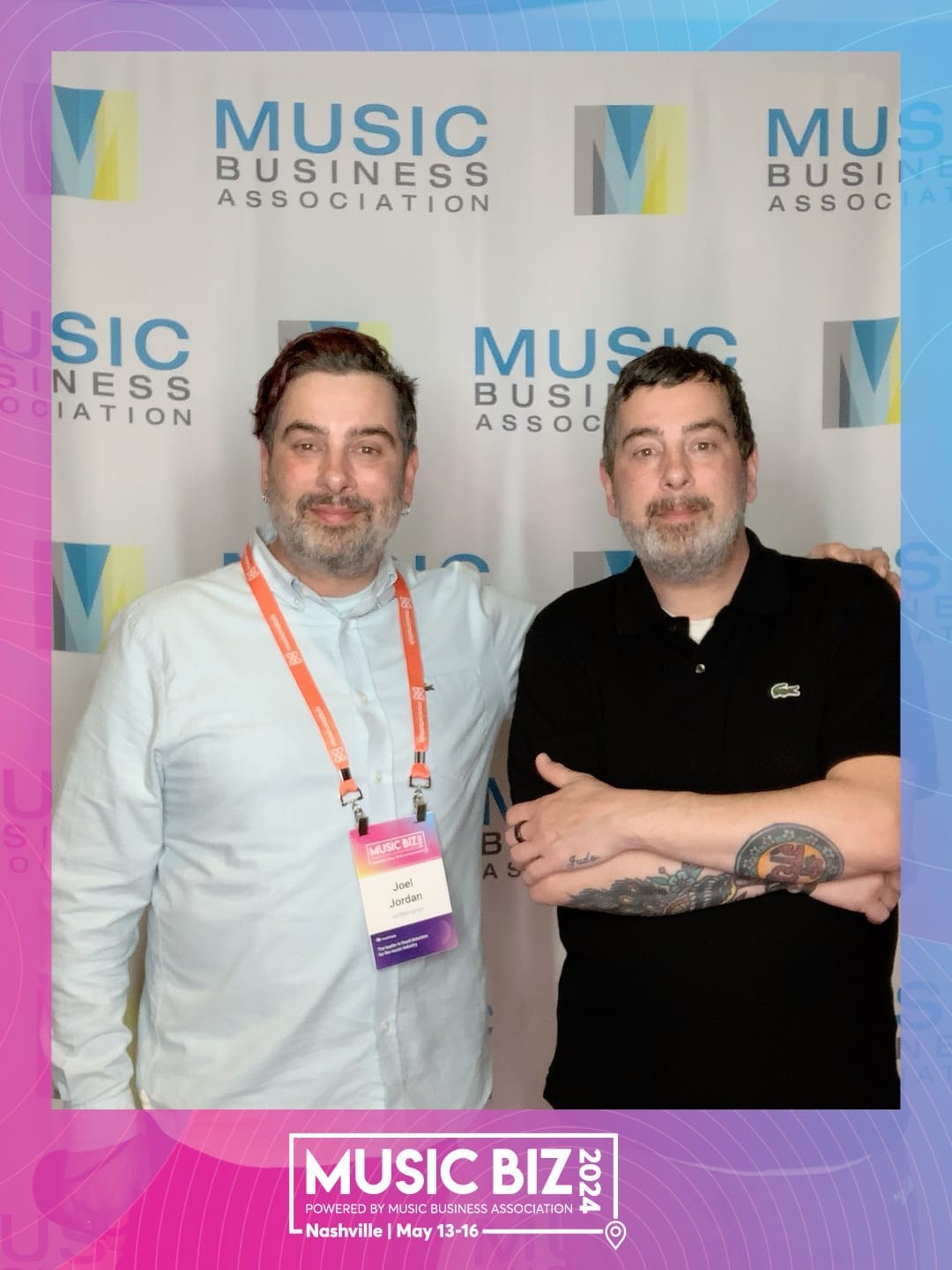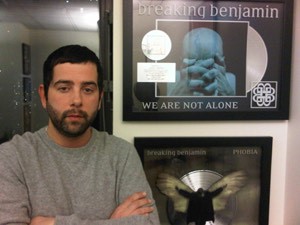The Truth About Record Deals Past & Present
earthprogram’s Jason Jordan - Pt. I

Not long ago, artists thought signing a record deal with a major label was the only ticket to success. Things have changed, and the music industry has been playing catchup since the dawn of Napster. For a short while, many labels turned to signing artists to 360 deals where they owned nearly every one of the artists' income streams. But thanks to social media and streaming's DIY opportunities and the increasing savvy of artists and industry lawyers, even those are a thing of the past.
Meet Jason Jordan of earthprogram
So, how do today's artists build sustainable careers? earthprogram's Jason Jordan has the answer. A music industry vet of over 30 years, he's had his hand in everything from indie punk labels to sitting atop some of the largest record companies in the world. His company, earthprogram, takes a different approach these days. They partner with artists to help them navigate the modern industry and find their own success.
Jordan was kind enough to take time out of his hectic schedule recently to share some of his valuable insight. He gives Sennheiser a look behind the industry's curtain, explaining how it used to work, where it is today, and how to move into the future.
He should know. He's been at this since he was a kid.
"I started a record company when I was 12 years old," he said. "I was into punk rock and hardcore, and my ethos comes from that era, doing it yourself. When I was 20 years old, I had labels coming to Philadelphia, where I lived, to try to sign my bands.
After that, I did A&R (Artists and Repertoire: A department within a record label or music publishing company that finds and develops new artists and acts as a liaison between the artists and the company) for major labels for nearly 30 years. I worked at Columbia Records for four years and Hollywood Records for 14 years, which was owned by Disney.
From there, I went into music publishing because I care about rights. I was the president of Imagem and the head of A&R, essentially for signing new publishing deals and then trying to get them active at the major labels. In 2016, I joined Republic Records as Senior Vice President of A&R for a couple of years."

Record Labels: The Old Model
With a resume that deep, Jordan knows the truth about labels' inner workings. While a lot of us think of the industry's heyday as limos and mansions, he says that was rarely the case. Instead, deals have always been designed to make the labels money first and foremost, even for the most prominent artists.
"It depended on how big of a priority you were," he admitted. "But you're already surrendering all of your assets at signing the deal. You get a check, and all of that money is recoupable, meaning that the money has to be [repaid] off of record sales. Then on top of it, all the costs of making the album are recoupable. All the costs of marketing it, making videos, and anything else that they're going to spend on you go into your debt.
I would be honest with artists when I was at a major label. I'd say, 'Look, I'm going to give you a shitload of money. We're going to make an album, but don't get it twisted. If you have a seven-album deal, it's still a singles deal.' It's not that sexy at the end of the day."

Record Labels Today
Though major record companies still operate as Jordan described, the traditional deal is an increasingly small part of the recording economy. Artists are adapting to a much more DIY approach these days, forcing labels to rethink their priorities.
"The days [are gone] of [someone like] me, in the early '90s, walking into a club and going, 'Oh, my God, the drummer was incredible. The singer's insanely talented. The lyrics are amazing. The guitar player is a star!'" Jordan explained. "I would often sign them just based on these touchstones, but it's no longer based on talent. It's based on prior success.
All major labels are now looking at streams. It's, 'Hey, you've streamed 30 million songs. Therefore, you should be signed to a major label. You're pre-qualified for a $1 million loan.' The idea is, 'If you're already succeeding on your own, what will it look like with us throwing gasoline on it?' However, 90% of the time, it's water that they throw.
It's true for all labels now. They don't do any artist development. There are very few people who can actually still walk somebody through the creative process."
Focusing on streaming makes a lot of sense. Since the early 2000s, platforms like Napster began gobbling revenue from CD sales, and labels were left scrambling to find new income sources. For a while, the answer was 360 deals, where they would take a cut from everything from the artists' merch to their touring profits. But these deals only worked for the biggest labels and artists with enough profit to keep both afloat. Jordan says he knows firsthand that even the biggest companies have now moved on from that model.
"I worked at Disney, and we were trying to do 360 deals because they had a merch company because, well, it was Disney. They had everything. But the 360 model, to me, is dead in the water. I just don't know anybody who's willing to do that."
What Record Labels Are Looking For
Today, labels are searching for a completed product that can all but guarantee a return on their investment. Streaming is their number one focus. And you can't forget social media. These are the new record stores. The good news is that these platforms make it easier than ever to get your songs out to the world. The bad news, as Jordan points out, is that the model comes with its own set of significant challenges.
"Kids discover music online," he said. "They might discover it on TikTok or YouTube. Then, they go right to their Spotify account, look up the artists, and then add it to their playlist. But there are 120,000 new songs coming out on Spotify every day, and there are hundreds of thousands, if not millions, of songs on Spotify that have zero plays. It's overwhelming."
Hope Is Not Lost
Though the record business is, and always has been, built to make money, streaming provides many opportunities for artists to build successful, sustainable careers. We'll tackle how to do this in Part II of our discussion with Jason Jordan.